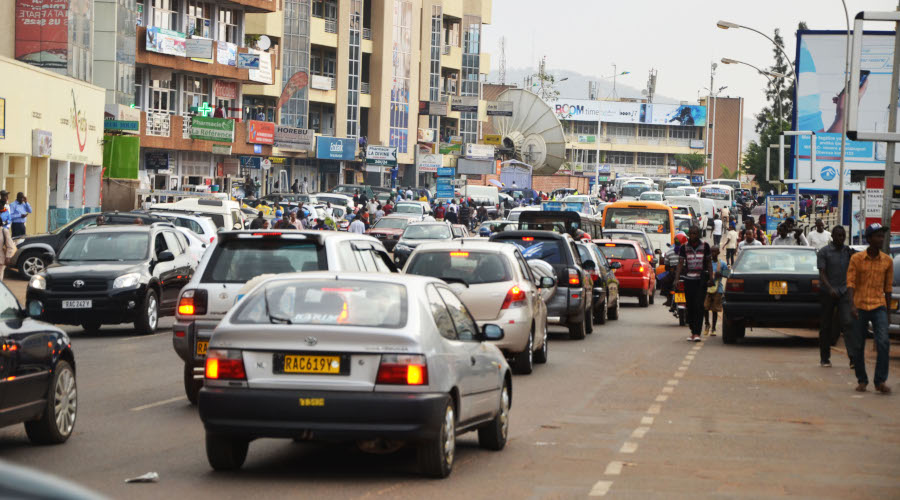

Rwanda’s car imports rose to 7055 last year, up from 7,000 in 2017, dominated by second-hand vehicles, according data from Rwanda Revenue Authority (RRA).
Customs figures show that the country imported 10,576 motorbikes in 2018.
The figures, however, demonstrate a decline from 2016 when some 8000 vehicles were shipped into the country. The figures do not reflect car imports made by government agencies.
According to importers who talked to The New Times, majority of the cars imported are second hand largely manufactured 10 years ago and above.
Rwanda’s car imports in 2018 were dominated by jeeps 2351 followed by sedan cars 1886, trucks 838, pickups 670 and 111 buses.
The importation of second-hand cars is driven by the fact that they are more affordable.
The firms, however, noted that despite the vehicles being second hand, there are efforts to ensure quality standards.
Alphonse Mutabazi, an automobile dealer says that second-hand ownership allows majority buyers acquire models produced around 2007 and 2008 – which are normally in relatively good condition – at an affordable price.
"Depending on the model preferred, there is a wide range of options but many especially those buying cars for personal use work with the budget of around $10,000,” Mutabazi said.
Toyota brands including Toyota RAV4, Toyota Corolla, and Toyota Carina dominate imports, he said.
Over the years, importing cars has become relatively easier with the rise in popularity of e-commerce platforms that allow buyers reach Asian sellers often without the need of an agent.
Importers, however, said that the cost of importing cars into the country has gone up over the last two years or so, largely due to an East Africa Community protocol that increased taxes on older cars to discourage dumping of old cars on the regional market, most of which had adverse impact on the environment.
East African states made the decision to have the harmonised depreciation rates starting 2015 in a move to cut down on carbon emissions from old cars which go on to have diverse effects on the environment, particularly damaging the Ozone layer.
Under the new regime, Rwanda Revenue Authority explained that for a vehicles 10 years and older, the depreciation is at 80 per cent.
With that, the authorities multiply the depreciation rate by the cost of vehicle at manufacture. The custom value is then levied usual taxes such as; 25 per cent import duty, 18 per cent VAT, five per cent to 15 per cent excise duty, depending on the size of the engine.
Car dealers say that the new regime has seen some importers pay taxes that are significantly higher than prices paid for acquisition.
Previously authorities often relied on internet sources to determine customs value based on its current market price.
Volkswagen which entered the local market last year noted that there is growing interest by Rwandans to acquire new vehicles and has been working on building financing avenues.
Levy Ouso, the Managing Director of CFAO, the Volkswagen dealer in Rwanda told The New Times.
"We are getting good inquiries so far and I am sure that the demand will increase as we get more stocks,” he said.
He said that they have formed partnership with local financial institutions to avail financing avenues to ease ownership.
"We have partnered with banks to offer finance for prospective buyers at an affordable rate. These banks include BK, Equity, I&M and BPR among others,” he said.
VW Polo model, the most affordable of the locally-assembled options costs $23,881 (Rwf20.5 million) all taxes included.
Volkswagen Passat retail sat $ 37,674 (Rwf32.3 million) while Tiguan which is a sports utility vehicle retails at $37,719 (about Rwf32.4M).
As of March this year, they had released 90 vehicles into the local market.
editor@newtimesrwanda.com


